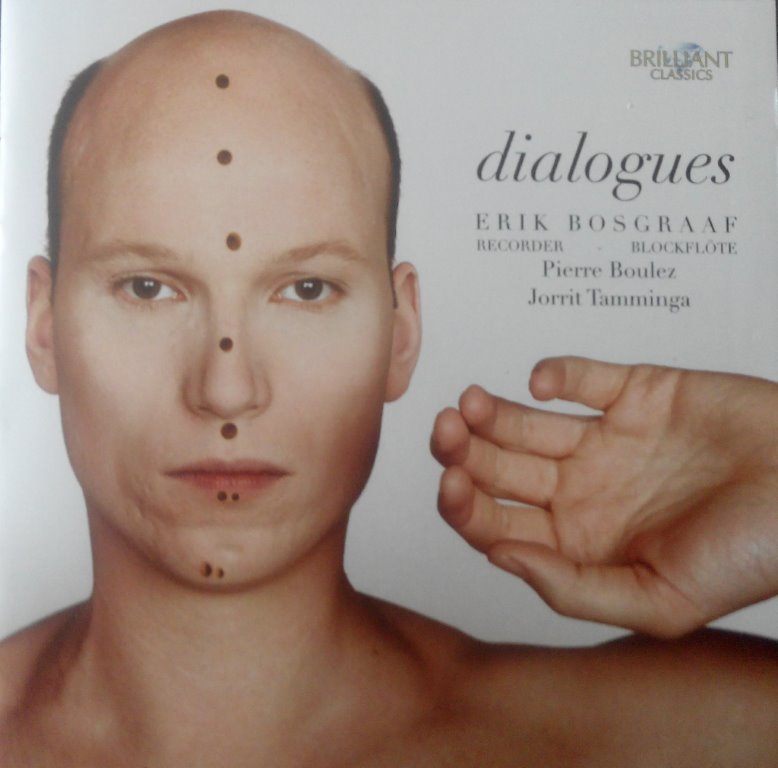Hij is de laatste nog levende avant-gardist, en het zal nieuwemuziekliefhebbers niet ontgaan zijn dat hij op donderdag 26 maart 90 jaar werd. Ik bedoel natuurlijk Pierre Boulez, de componist en dirigent die ooit Schönberg doodverklaarde en opperde dat operahuizen misschien opgeblazen moesten worden vanwege hun vermolmde programmering. Dezelfde man brak vervolgens onvermoeibaar een lans voor de muziek van Arnold Schönberg en zelfs van Richard Wagner, wiens complete Ring des Nibelungen hij in het Wagnerbastion Bayreuth uitvoerde. Een iconisch figuur, kortom. Maar “leeft” hij nog?
Enerzijds ja: de landelijke kranten wijdden grote artikelen aan de negentigste verjaardag van de eigenzinnige modernist. Twee aan hem gewijde concerten in het Muziekgebouw aan ’t IJ trokken afgelopen week aardig volle zalen en de uitvoering van zijn grootschalige Répons in het komende Holland Festival was in no time uitverkocht. Etty Mulder, voormalig hoogleraar muziekwetenschap aan de Radboud Universiteit, presenteerde haar nieuwe boek Het vruchtbare land, genoemd naar een artikel van Boulez over de relatie tussen zijn muziek en het werk van de schilder Paul Klee.
Anderzijds nee: de door Etty Mulder en Marius Flothuis opgerichte Stichting Pierre Boulez kreeg slechts mondjesmaat publiek voor een concert in Nijmegen en ook het aan Boulez gewijde festival Dag in de Branding trok met concerten van het Asko|Schönberg en het Residentie Orkest slechts zo’n 250 bezoekers. – Terwijl dit laatste toch werd gedirigeerd door Reinbert de Leeuw, paradepaardje van het Koninklijk Conservatorium. Voor het symposium rond Boulez aldaar op zondag 29 maart hoefde men evenmin extra stoelen aan te slepen. Veelzeggend: Boulez’ muziek schittert dit seizoen door afwezigheid in de programma’s van het Koninklijk Concertgebouworkest en de NTR Zateragmatinee.
Zijn ster lijkt al jaren ietwat aan het verbleken te zijn. Al toen ik in 2002 voor de nieuwsbrief van het Asko|Schönberg componisten vroeg naar hun mening, bleek alleen de oudere garde (Reinbert de Leeuw, Oliver Knussen) nog met werkelijke waardering over Boulez te spreken. Jongere componisten als Yannis Kyriakides en Merlijn Twaalfhoven gaven onomwonden toe dat hij voor hen niet veel meer was dan ‘een man uit een boek’, die vooral moeilijke, naar hun smaak te streng gestructureerde muziek componeerde.
Maar zie: op zijn splinternieuwe cd Dialogues presenteert blokfluitist Erik Bosgraaf een eigen bewerking van Boulez’ Dialogue de l'ombre double. Die schreef het oorspronkelijk voor klarinet en een ‘schaduwklarinet’ op band, maar gaf Bosgraaf hoogstpersoonlijk toestemming het om te werken voor zijn eigen instrument. Toen deze zijn versie in 2011 voorspeelde, was de maître meteen enthousiast, omdat de klank van de blokfluit die van het Aziatische regenlied dat hem ooit inspireerde veel dichter benadert dan de klarinet.

Dialogue de l'ombre double heeft een theatrale component, want de solist voert een dialoog met – door hemzelf gespeelde – muziek op band. Al spelend loopt hij van muziekstandaard naar muziekstandaard, terwijl de klank van de opgenomen fragmenten uit zes verschillende luidsprekers komt. Het stuk begint en eindigt met een bandopname. Bosgraaf in het cd-boekje: ‘Dus de speler komt de zaal binnen en begint not te spelen. Dat werkt zo sterk. De manier waarop het stuk een spelletje speelt met de verwachtingspatronen van het publiek is zo intelligent en intuïtief dat het me jaloers maakt.’
Het theatrale element ontbreekt op de cd, maar je kunt je goed voorstellen dat Boulez ingenomen is met de versie van Erik Bosgraaf. Niet alleen heeft hij een geweldige techniek, maar ook hoor je dwars door de lastige noten heen een enorme speelvreugde. De alle perken te buiten gaande, razendsnel tussen registers springende virtuoze loopjes lijken één grote jubel op het leven. Ze worden door Bosgraaf met zo’n inzet en schijnbaar gemak uitgevoerd, dat je als luisteraar onherroepelijk wordt meegesleept. De welhaast wellustige klankwereld die hij oproept kan het best omschreven met de Franse term jouissance. Zo sensueel en verleidelijk hoorde ik Dialogue de l'ombre double nooit eerder. [Tweet “Erik Bosgraaf in Dialogue de l’ombre double van Boulez: sensueel en verleidelijk “]
Bosgraaf is weer net iets jonger dan Kyriakides en Twaalfhoven, dus misschien kunnen we voorzichtig concluderen: Boulez leeft!

